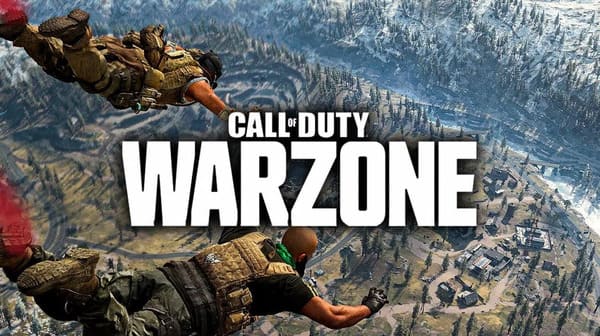Advertisement
Popular Now
Introduction
In the fast-paced world of competitive gaming, Call of Duty: Warzone has established itself as a dominant force within the battle royale genre. With its unique blend of strategy, teamwork, and skill, players are constantly seeking to improve their performance. However, one significant issue that has sparked intense debate within the community is the implementation of Skill-Based Matchmaking (SBMM). While designed to create fair and competitive matches, SBMM has drawn criticism for its impact on player experience, game balance, and overall enjoyment. This article delves into the complexities of SBMM in Warzone, examining its evolution, effects on gameplay, community reactions, and potential alternatives.
The Evolution of Skill-Based Matchmaking
What is Skill-Based Matchmaking?
Skill-Based Matchmaking is a system used in multiplayer games to pair players of similar skill levels in competitive matches. This system aims to create balanced gameplay by matching players based on their performance metrics, such as kill-death ratio (K/D), win rate, and overall experience. The idea is to ensure that matches are competitive and enjoyable for everyone involved.The Introduction of SBMM in Warzone
When Warzone was initially released, it relied on a more casual matchmaking system that prioritized connection quality over player skill. This led to a mix of players across different skill levels, which some found enjoyable, as it allowed for a more relaxed gaming experience. However, as the competitive nature of the game grew, so did the demand for a more refined matchmaking system. The introduction of SBMM aimed to address concerns about unfair advantages and encourage a more level playing field.The Impact of SBMM on Gameplay
Balancing Competitive Integrity
Proponents of SBMM argue that it enhances competitive integrity by ensuring that players face opponents of similar skill levels. This system can lead to more intense and engaging matches, as players are challenged to improve their skills against peers. The thrill of competing against equally skilled opponents can enhance the overall gaming experience, fostering a sense of achievement when players perform well.Frustration with Match Quality
Despite its intended benefits, many players have expressed frustration with the quality of matches under SBMM. One common complaint is the inconsistency in matchmaking, where players may find themselves matched against opponents who are significantly more skilled. This can lead to one-sided games, where less experienced players feel overwhelmed, resulting in a negative experience. The pressure to perform can also create a more toxic environment, as players become frustrated with their own performance and that of their teammates.Community Reactions: A Divided Player Base
Support for SBMM
 Some segments of the community support the implementation of SBMM, emphasizing the importance of fair competition. These players appreciate the challenge of facing opponents who match their skill level and argue that it encourages growth and improvement. They believe that a fair matchmaking system helps maintain a healthy competitive atmosphere and rewards players for their dedication and skill development.
Some segments of the community support the implementation of SBMM, emphasizing the importance of fair competition. These players appreciate the challenge of facing opponents who match their skill level and argue that it encourages growth and improvement. They believe that a fair matchmaking system helps maintain a healthy competitive atmosphere and rewards players for their dedication and skill development.
Opposition to SBMM
Conversely, a significant portion of the player base vehemently opposes SBMM, citing concerns about enjoyment and accessibility. Many casual players feel that the pressure to perform at a high level detracts from the fun and spontaneity of the game. The expectation to consistently play well can be overwhelming, leading to burnout and decreased enjoyment. This division within the community has sparked heated discussions, with players passionately defending their positions on both sides of the debate.The Psychological Effects of SBMM
Increased Stress and Anxiety
The competitive nature of SBMM can lead to heightened stress and anxiety among players. When facing opponents of similar skill, the pressure to perform can become overwhelming, particularly for those who are less experienced. Players may find themselves fixating on their stats and performance metrics, leading to a cycle of self-doubt and frustration. This can ultimately detract from the enjoyment of the game, transforming what should be a fun experience into a stressful chore.Impact on Mental Health
Beyond immediate gameplay, the psychological effects of SBMM can have long-term implications for players' mental health. The relentless pursuit of improvement and the pressure to maintain high performance can contribute to anxiety and burnout. Players may begin to associate gaming with negative feelings, leading them to disengage from the community or abandon the game altogether. The mental toll of SBMM underscores the need for developers to consider player well-being when implementing competitive systems.Balancing Competitive Play and Casual Fun
The Need for Flexibility
 One of the primary challenges of SBMM in Warzone is striking a balance between competitive integrity and casual enjoyment. While competitive players thrive on the challenge of facing skilled opponents, casual players seek a more relaxed experience. The rigid nature of SBMM can alienate casual gamers, leading to a decline in the player base. Developers must consider implementing flexible matchmaking options that cater to both competitive and casual players, allowing them to choose their preferred experience.
One of the primary challenges of SBMM in Warzone is striking a balance between competitive integrity and casual enjoyment. While competitive players thrive on the challenge of facing skilled opponents, casual players seek a more relaxed experience. The rigid nature of SBMM can alienate casual gamers, leading to a decline in the player base. Developers must consider implementing flexible matchmaking options that cater to both competitive and casual players, allowing them to choose their preferred experience.















